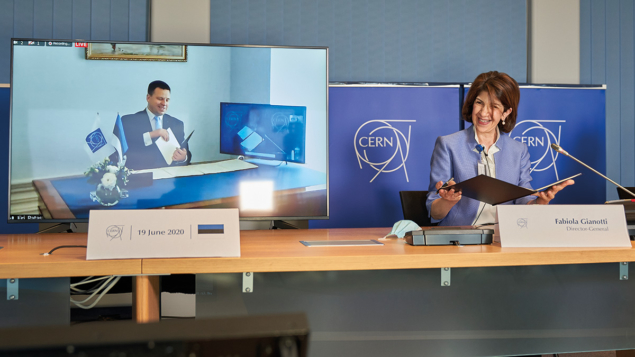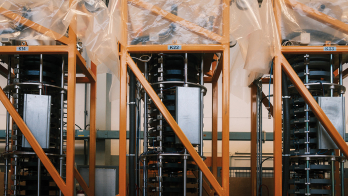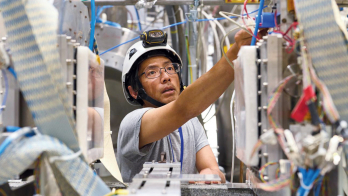
On 19 June the prime minister of Estonia, Jüri Ratas, and CERN Director-General, Fabiola Gianotti, signed an agreement admitting Estonia as an associate member state in the pre-stage to membership of CERN. The agreement will enter into force once CERN has been informed by the Estonian authorities that all the necessary approval processes have been finalised.
“With Estonia becoming an associate member, Estonia and CERN will have the opportunity to expand their collaboration in, and increase their mutual benefit from, scientific and technological development as well as education and training activities,” said CERN Director-General Fabiola Gianotti. “We are looking forward to strengthening our ties further.”
Many important opportunities open up for Estonian entrepreneurs, scientists and researchers
Jüri Ratas
After joining the CMS experiment in 1997, Estonia became an active member of the CERN community. Between 2004 and 2016 new collaboration frameworks gradually boosted scientific and technical co-operation. Today, Estonia is represented by 25 scientists at CERN, comprising an active group of theorists, researchers involved in R&D for the Compact Linear Collider project, a CMS team involved in data analysis and the Worldwide LHC Computing Grid, and another team taking part in the TOTEM experiment.
CERN’s associate member states are entitled to participate in meetings of the CERN Council, Finance Committee and Scientific Policy Committee. Their nationals are eligible for staff positions and fellowships, and their industries are entitled to bid for CERN contracts.
“As an associate member, many important opportunities open up for Estonian entrepreneurs, scientists and researchers to work together on innovation and R&D, which will greatly benefit Estonia’s business sector and the economy as a whole,” said Jüri Ratas, Estonia’s prime minister, at the signing ceremony. “Becoming an associate member is the next big step for Estonia to deepen its co-operation with CERN before becoming a full member.”








